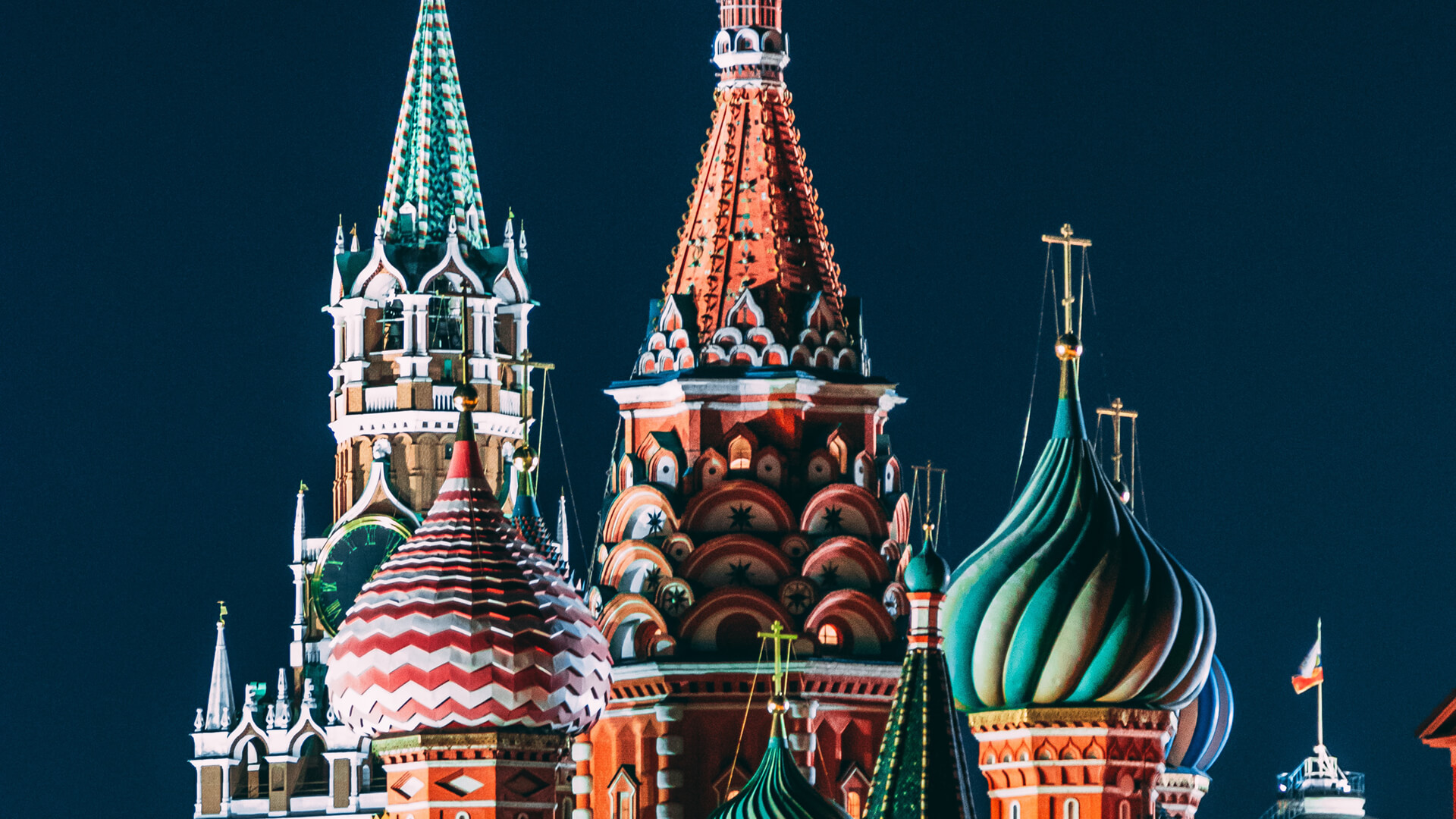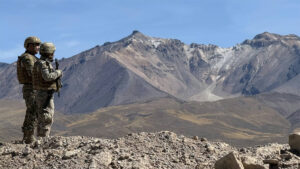Read the other installments in this series:
Life after Trump, Part I: Living in the Lightning
Life after Trump, Part II: Searching for Truth in a Flood of Freedom
Life After Trump, Part III: The End of the Republican Alliance
Life After Trump, Part IV: Building a Better Democrat…Maybe
Life After Trump, Part V: The Opening Roster
Life After Trump, Part VI: The Crisis List—Russia
Life After Trump, Part VII: The Crisis List—The Middle East
Life After Trump, Part VIII: The Crisis List—China
After sketching out what was intended to be the final installment of this series, I realized the world was in a lot more trouble than I had thought. So, the “Crisis List” installment is going to be a whole mini-series of its own. Let’s begin with the country that has experienced the greatest surge in influence under former President Trump: Russia.
Throughout history the Russians have always held a weak hand. Their geography and climate make the basics of life – food and security – devilishly difficult. Their lack of navigable rivers demands huge rafts of artificial infrastructure, but that costs money that Russia’s brutal winters and vast distances simply don’t generate. Painfully short summers limit food production per acre forcing Russians to spread out to farm the necessary calories. Russia has pretty much always held the record for the fewest people per square mile among the world’s populated zones.
Add in wide-open borders that are wretched at blocking marauding Swedes, Germans, Mongols and even Poles, and Russia lives in the worst of pickles. An expensive, low-reward land. Scattered populations who quite reasonably hope that life might be better elsewhere. Looming threats of invasion.
Surviving here requires a big army (at a big cost in economic and cultural terms) and a massive intelligence system finely attuned to every whisper of dissent and every footfall at Russia’s edges.
The Americans created globalization to bribe up an alliance to contain the Soviets, but it also generated an unexpected boon for Moscow. In banding all of Russia’s traditional foes (and then some) into a single coalition, the Americans removed any strategic initiative from all their new allies. The Russians only needed to worry about the Americans. No one else. From 1946 to the Soviet Union’s very end, no one invaded Russia. Such bliss had never occurred. The Russians may have been contained but they were left alone, giving them 45 years to attempt to make their country work.
In the end it wasn’t enough time. While Soviet engineering was indeed impressive compared to what happened under the tsars, there just weren’t enough resources – human, material, or economic – to fund everything. Developing lands as crappy as Russia’s is expensive. Fighting a global Cold War is expensive.
After the Soviet Union collapsed, Russia’s leaderships have been forced to make a series of ever-more-damning decisions. What to fund versus what to leave to rot? Food production? The rail lines? The air force? The missile forces? Oil production? The educational system? Everything comes at a cost, and Russia’s resources are limited. With the Russian demography among the world’s fastest aging and arguably the world’s most unhealthy, those resources are shrinking by the year. Everything – and I mean everything – has had its funding cut. Everything but one thing: those mission-critical intelligence services.
And so it is primarily through the intelligence services that the Russians engage the world. The Kremlin realizes every other measure of their power from military force to energy exports to high-tech work is living on borrowed time.
The Russians have good reason to be worried, but to this point they’ve been able to avoid catastrophe. That’s as much due to luck with the Americans as anything else.
The Russians found W Bush intimidating as it was very clear back in 2001 he planned to massively expand the NATO alliance to Russia’s west, and amp up U.S. military tech to prevent any possibility of a Russian revival. But then came 9/11. The Russian transport system became integral to fighting the war in Afghanistan. Bullet dodged. Breath sighed.
The Russians found Obama so willfully disinterested and functionally incompetent in foreign affairs that they called him a “p*ssy” in official internal communications. Once Hillary Clinton left TeamObama in February 2013, there was no one remaining the Russians found even a touch worrisome. Russia invaded Ukraine about a year after H Clinton’s departure.
The Russians found Trump nearly as easy to dismiss. A completely insincere bit of flattery here, a casual dismissal of his political foes there, and Trump just let any matter that bothered the Russians drop. Trump’s staff were a different matter: Rex Tillerson, HR McMaster, John Kelly, and James Mattis caused problems for the Russians over and over and over. But it became clear to Moscow early on that Trump was Trump’s own worst enemy, and Trump disposed of all of his anti-Russian staffers with nary a nudge from the FSB. From the last of those staffer’s departure – John Kelly in January 2019 – the Russians didn’t have to worry about the Trump administration much at all.
So what about Biden?
Biden is not a governor with a record that can be evaluated like W Bush, or a pathologically disengaged figure like Obama, or a simplistic caricature like Trump. Biden is just a fairly normal…guy. An ideologically uncommitted guy; His political views sway with the winds. A guy whose been in politics since the planets first formed, but who has no record of leadership. What in my opinion makes Biden a questionable choice for president makes him precisely what the Russians fear most: an unknown element.
Intelligence services hate unknown elements. Finding out about their new adversary from a press release, such as the one from the State Department Feb 4 after Biden gave a speech to the Foreign Service, is not the way they like to learn things.
And so the Russians are left to fall back upon their intelligence services once again. They will be searching for weaknesses. In the country. In the government. In the president.
They have a fair amount to work with.
The Russians are absolutely thrilled with what went down in Washington DC on January 6. In the Russian mind anything that keeps Americans focused on one another is a win. But having a sitting president egg on a mob against his own law enforcement personnel? That’s a platinum standard the Russians didn’t even realize they could aim for.
Expect Russian state hacking to double its efforts against the U.S. government. In 2020 the Russians penetrated the Texas tech firm SolarWinds and used its update systems to penetrate dozens of government agencies. From what we know to this point the Russians were not expecting such runaway success, and certainly were not sufficiently staffed to chase down all the opportunities the SolarWinds effort had produced. Luckily for the Russians, Trump – like Obama before him – was utterly unenthused with the topic of cyber-security and so the vast bulk of the Russians’ labor-fruit has remained available. The Russians have had months to train and/or reassign staff to the cornucopia of new hacking options. It will be Biden that has to deal with the aftermath.
Nor will the American population get a free pass. The Russians have long been involved in supporting disruptive groups of various ideological backgrounds, from environmentalists to Antifa to peaceniks to white supremacist movements, seeing them as cheap and easy means of keeping American politics off-kilter.
This time around the Russian effort will focus on keeping Trumpism alive.
Those involved in the January 6 riots have found themselves essentially banned from mainstream social media, up to and including the former president himself. Amazon and Apple removed Parler, a censor-free platform that saw heavy usage by the rioters and other extremists, from their systems completely. Now the Russian firm Ddos-Guard, officially unrelated to the Kremlin *rolls eyes*, is providing Parler with denial-of-service-attack protection and traffic monitoring to help it get back up and running. The goal is pretty straightforward: keep America’s most violent citizens as politically active as possible, and limit America’s ability to reach some sort of resolution in the aftermath of Trump’s final days.
It isn’t like Biden lacks tools to strike back. The shale revolution has granted the Americans functional energy independence, while COVID combined with NAFTA2 have concentrated America’s economic interests closer to home. Striking against Russian energy or finances just doesn’t have the propensity for blowback it might have had a decade ago. Since the bulk of Russian state income originates from commodity sales, this is a big problem indeed.
(Please don’t write in about how Biden is going to “kill oil” and “change everything”. Biden’s executive orders on limiting shale work on federal land impact less than 1% of US oil and natural gas production. When Biden does something that will appreciably impact America’s energy mix, it’ll have global consequences and I will write about it. We aren’t anywhere close to that at present.)
The Russians also love nothing more than imprisoning dissidents, and the Feb 2 conviction of Alexei Navalny on corruption charges is a case in point. (Honestly, the only thing Navalny is guilty of is surviving an FSB assassination attempt.) Expect Biden to spin the Navalny conviction well out of proportion in order to use established sanctions tools to hit Russia everywhere under the guise of human rights policy. That’ll cause the Russians no end of trouble. (That’ll likely cause the Germans no end of trouble too, but that is a topic for another day.)
Far worse for the Russians than income losses or sanctions is the fact that Biden has selected someone for the post of CIA Director who knows the Russians very well. William Burns served W Bush as ambassador to Moscow for three years during the Afghan War. There are few Americans alive who know the Russians capacities, foibles, and dark corners better. The Russians respect him…in that special way that you respect a hated rival. Courtesy of Burns, Biden will at a minimum have both forewarning of Russian plots and retaliatory options to choose from.
Russia has tools, many tools, at its disposal. Russia can – Russia will – do a great deal of damage. But for the first time in decades the tables are flipped. This time around the Americans know more about the sitting Russian government than vice versa. For a country whose survival is predicated upon accurate intelligence, that must be terrifying.
If you enjoy our free newsletters, the team at Zeihan on Geopolitics asks you to consider donating to Feeding America.
The economic lockdowns in the wake of COVID-19 left many without jobs and additional tens of millions of people, including children, without reliable food. Feeding America works with food manufacturers and suppliers to provide meals for those in need and provides direct support to America’s food banks.
Food pantries are facing declining donations from grocery stores with stretched supply chains. At the same time, they are doing what they can to quickly scale their operations to meet demand. But they need donations – they need cash – to do so now.
Feeding America is a great way to help in difficult times.
The team at Zeihan on Geopolitics thanks you and hopes you continue to enjoy our work.







